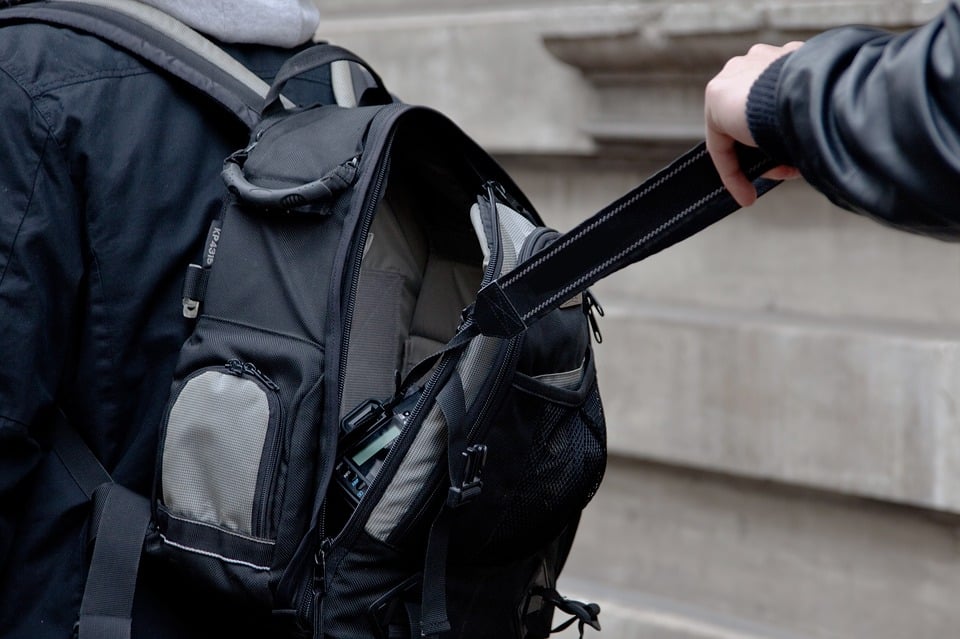5 Defenses An NYC Grand Larceny Lawyer Can Make On Your Behalf

Page Contents
- #1: You Had Consent to Take the Property
- #2: Property’s Value Was Less Than the Cut-Off for Grand Theft
- #3: You Didn’t Act With Criminal Intent
- #4: You Were Innocent of Any Larceny or Theft
- #5: You Returned the Property to the Owner
- What Defense Strategy Is Right for Your Case?
Under New York’s criminal law, there are several elements required for the crime of grand larceny. For example, the property supposedly stolen must belong to another person, if it is the property of the defendant, then there is no theft or larceny.
A prosecutor must prove this element, and all the others, beyond a reasonable doubt for a jury to convict you of the crime. Given the specificity of charges for grand larceny, an NYC grand larceny lawyer often builds a defense refuting or casting doubt on a single element of the crime. The defense team at Greco Neyland provides five examples of these defenses to grand larceny in this post.

#1: You Had Consent To Take The Property
In New York, one element of grand larceny is that the property was taken, obtained, or withheld unlawfully. Consent by the property refutes the accusation that the property was taken unlawfully. This is a strong defense to any larceny charges, provided an NYC grand larceny lawyer has an email, contract, or other evidence of the owner’s consent.
#2: Property’s Value Was Less Than The Cut-Off For Grand Theft
Grand larceny can be charged in the fourth, third, second, or first degree. The determining factor between these different charges is the total market value of the property stolen and, on occasion, the type of property stolen and how it was stolen. For example, when the value of the property exceeds $1,000,000 it is grand larceny in the first degree, the most serious grand larceny offense.
The least serious grand larceny offense is grand larceny in the fourth degree. The value of property stolen must exceed $1,000 for grand larceny in the fourth degree. If the value of stolen property is under $1,000, then the appropriate charge is petit larceny, a far less substantial offense in New York.
An NYC grand larceny lawyer will thoroughly investigate the value of the property you are accused of stealing and make an argument that it falls below the threshold for grand larceny in the fourth degree.
#3: You Didn’t Act With Criminal Intent

Your intent is an essential element of grand larceny. In an NYC criminal court, the prosecution must prove that you took, obtained, or withheld the property of another person with the intent to deprive the rightful owner. This intent to deprive the rightful owner is often called criminal intent by an NYC grand larceny lawyer. And without this criminal intent, the prosecution can’t win a conviction.
An NYC grand larceny lawyer can refute criminal intent by showing you believed, in good faith, that the property belonged to you. An example would be believing that you co-owned the property, with evidence to support this claim. This honest belief of ownership negates criminal intent, even if it was ultimately a mistaken belief.
#4: You Were Innocent Of Any Larceny Or Theft
Actual innocence is a defense to many crimes in the New York Penal Law, including grand larceny. How can an NYC grand larceny lawyer provide evidence of actual innocence? A criminal lawyer may have evidence that another person actually committed the theft or that the victim never had ownership of the property. For example, there might be evidence that the supposed victim harbored ill feelings against you or had a reason to want you accused of this crime.
#5: You Returned The Property To The Owner
To commit grand larceny there must be intent to deprive the rightful owner of the property. Earlier, we discussed that criminal intent is essential to the prosecution of a larceny case. The prosecution must show that you had a particular mindset when committing the crime. If you returned the property to the owner, it can be evidence that you didn’t intend to deprive the owner of use, enjoyment, or access to the property.
Often, arguing that you returned the property isn’t a complete defense to grand larceny. The prosecution can show that any attempt to move or control the property for a period of time is intent to deprive the rightful owner. However, evidence the property returned builds sympathy with the jury and shows remorse for sentencing.
What Defense Strategy Is Right For Your Case?
Knowing the right defense for your case is the job of an NYC grand larceny lawyer. A great lawyer will look at all the facts and circumstances surrounded charges of grand larceny and determine the weakest points in the prosecution’s case. This process involves trust between an NYC criminal lawyer and you, and extensive prior experience to recognize the strongest strategy.
You’ll find an NYC grand larceny lawyer prepared to provide the best defense possible at Greco Neyland. To schedule an initial consultation with an experienced theft defense lawyer on our team, call 212-951-1300.
